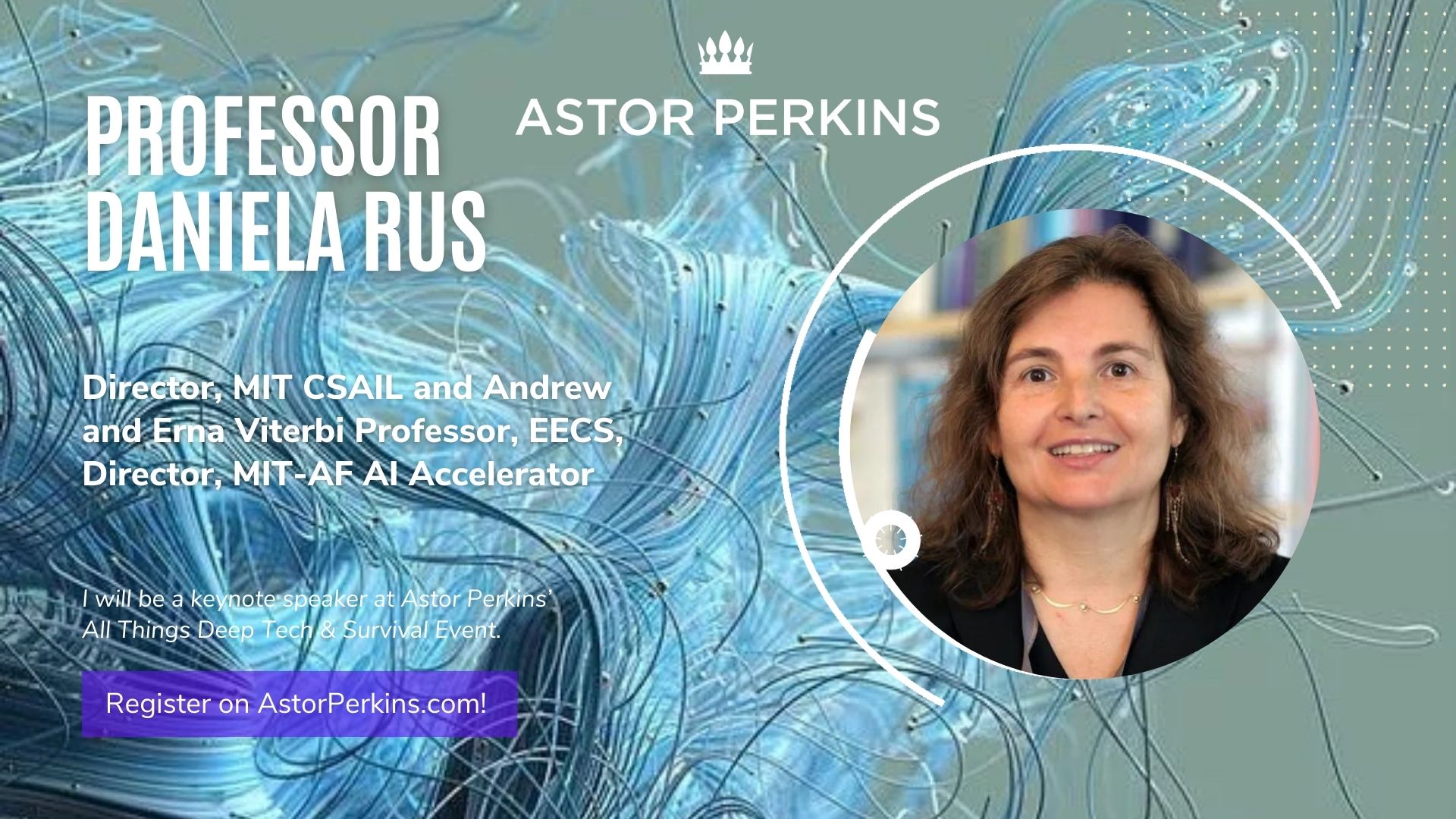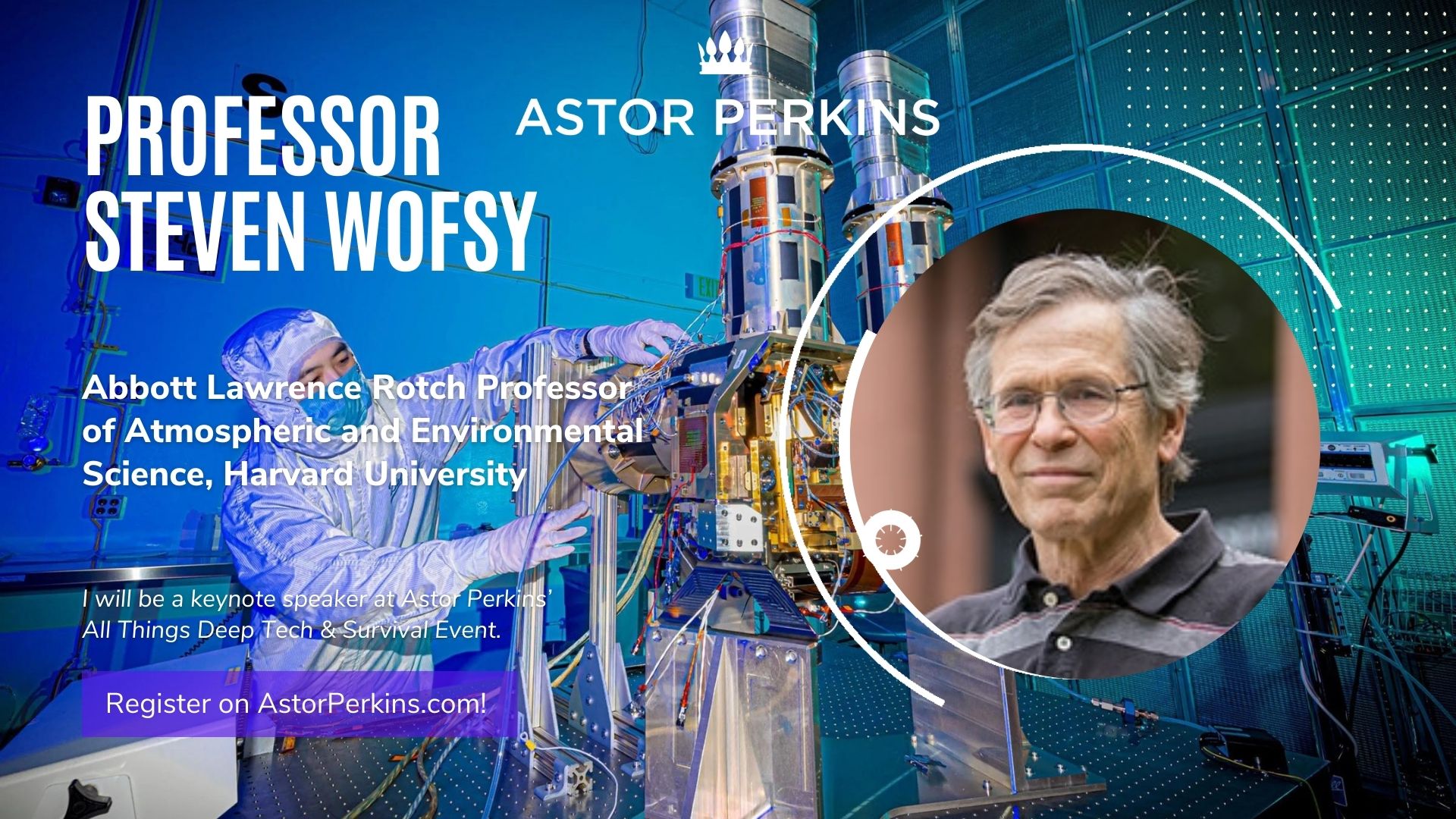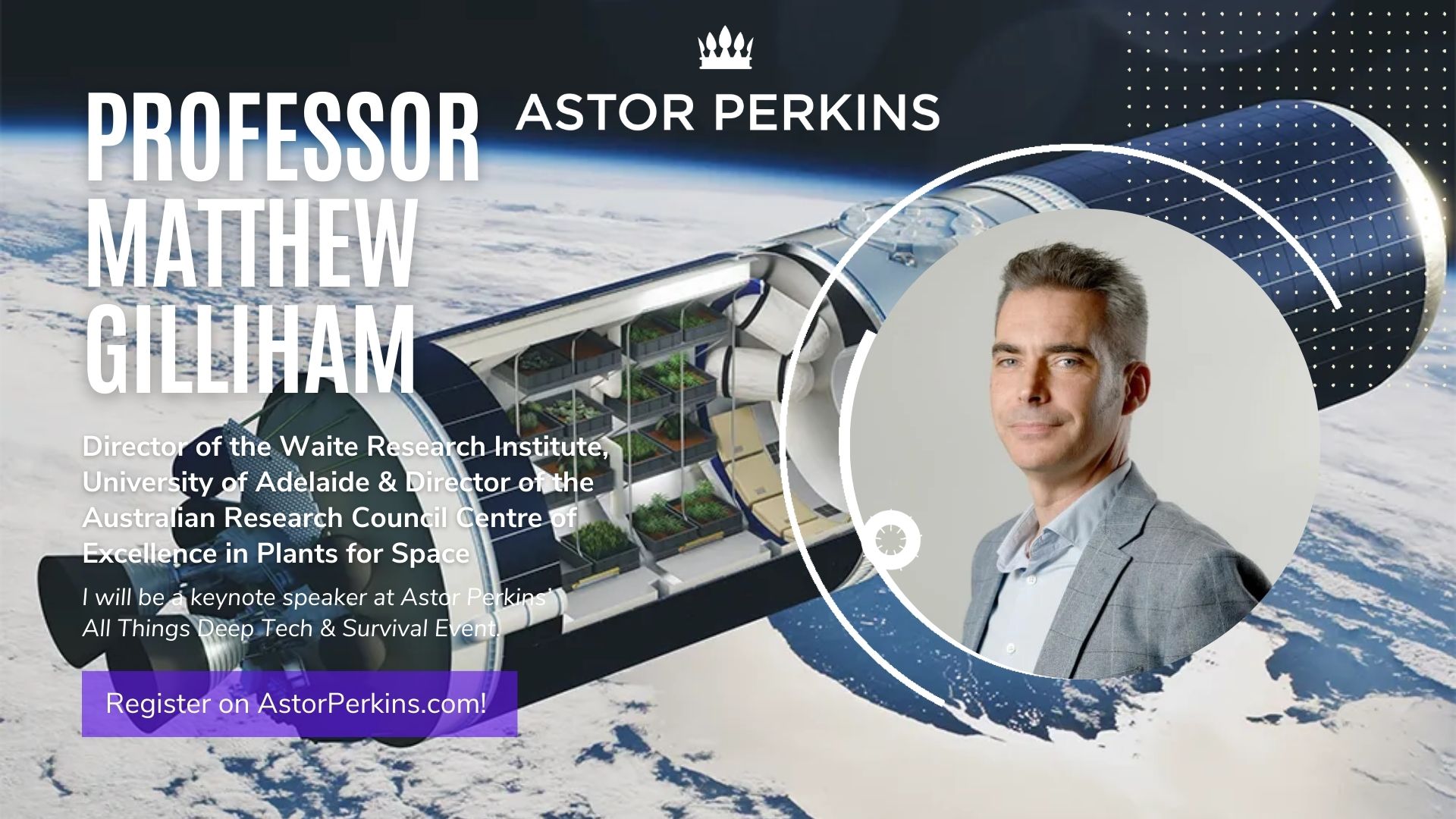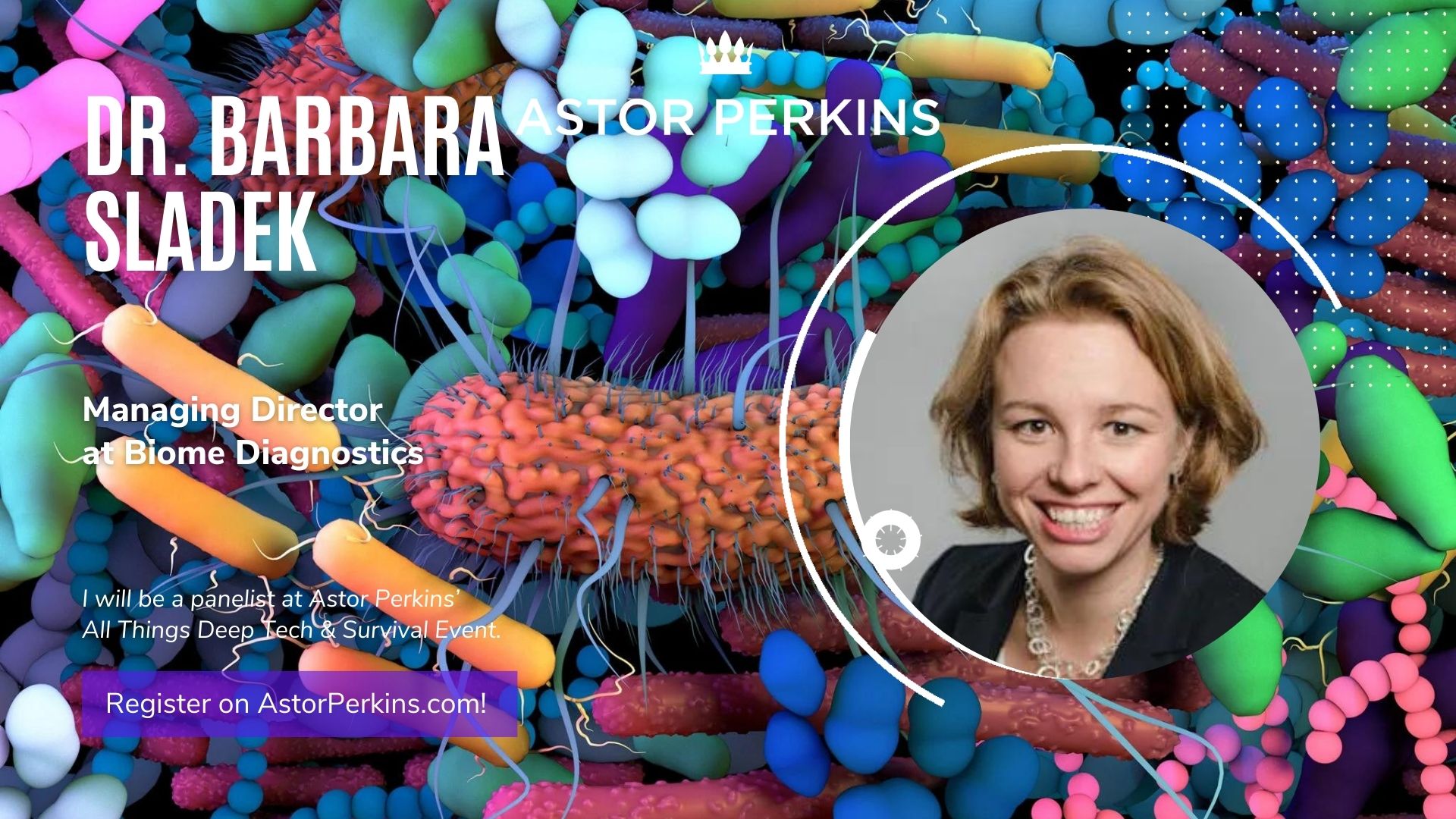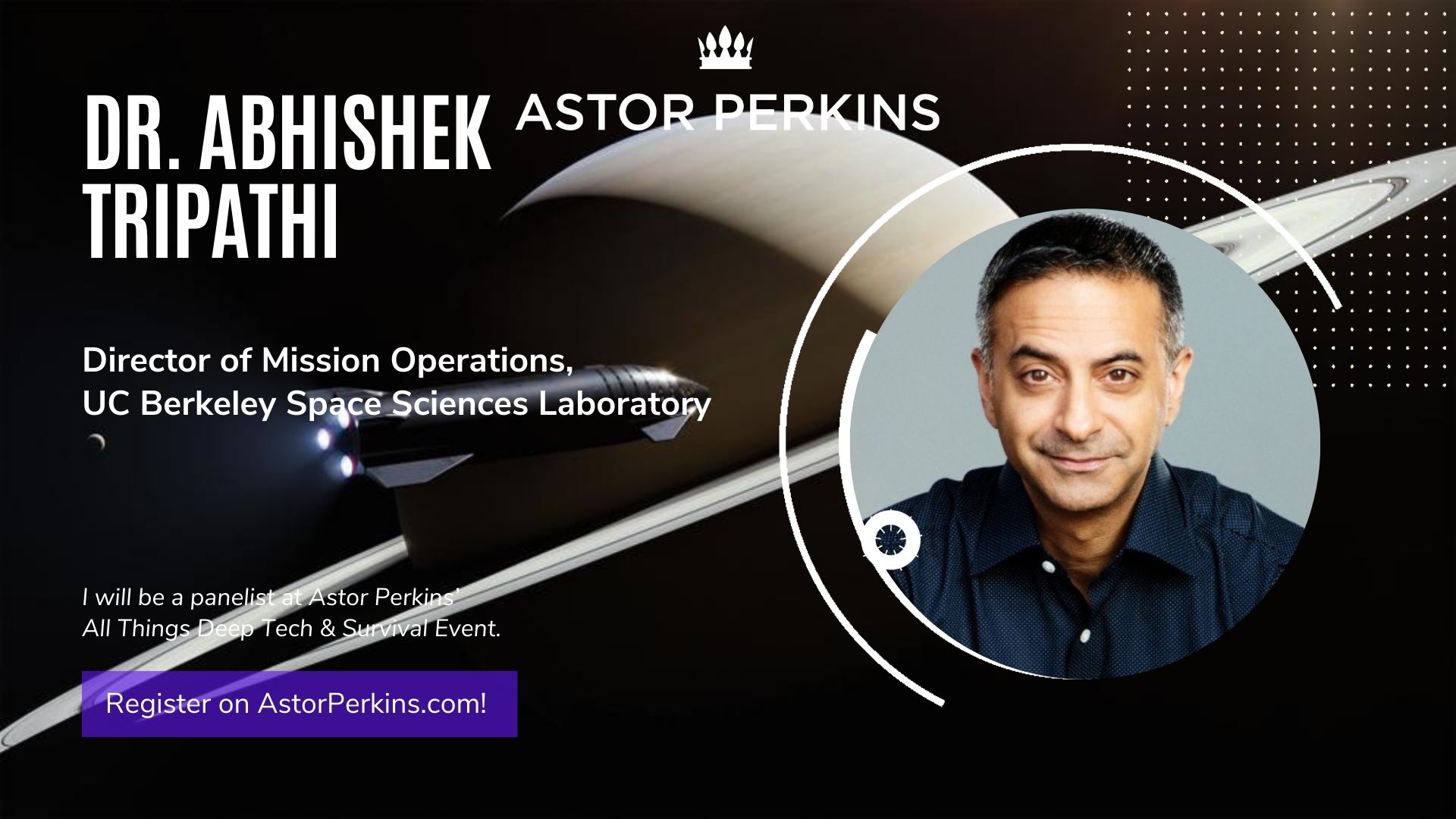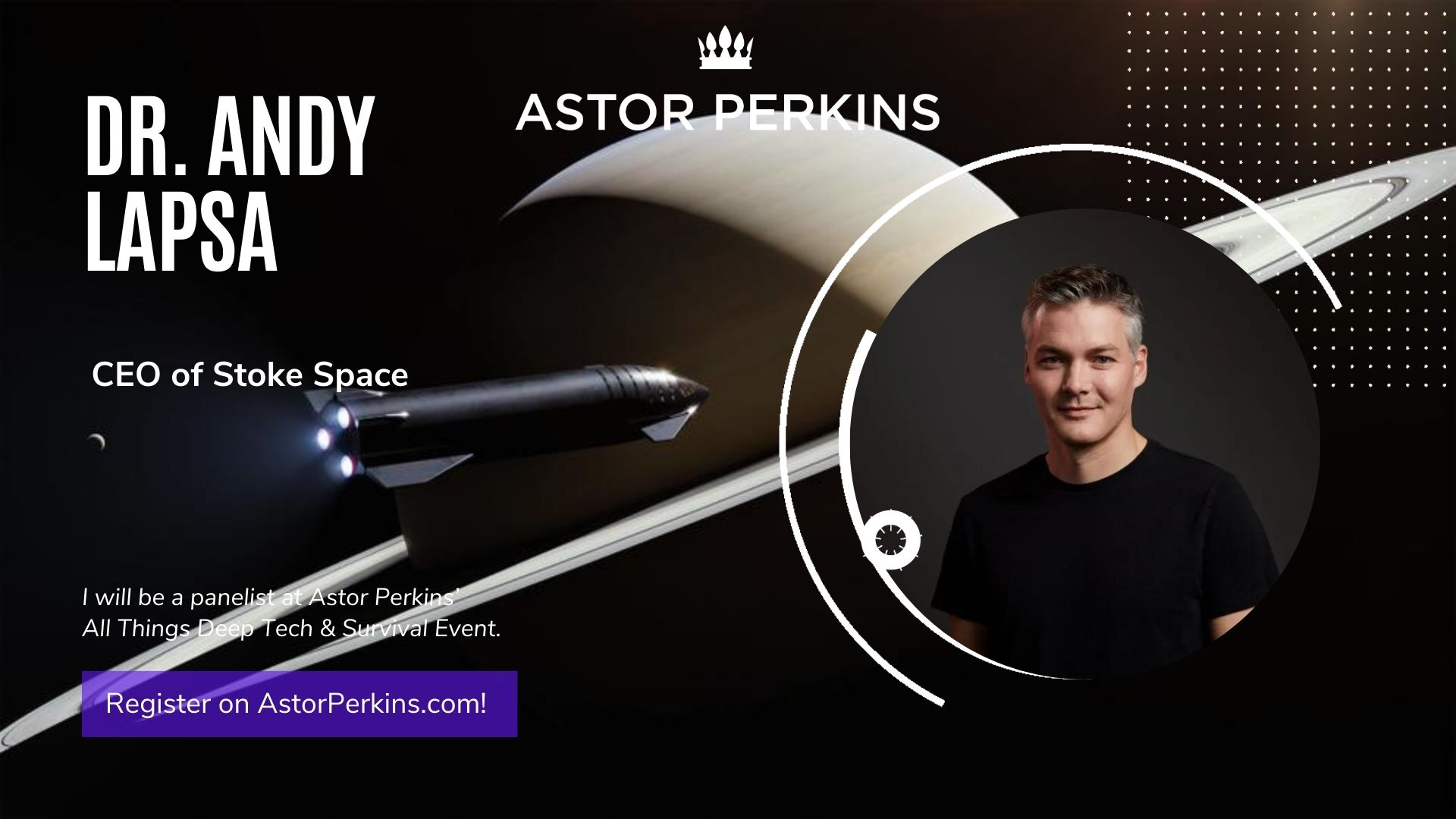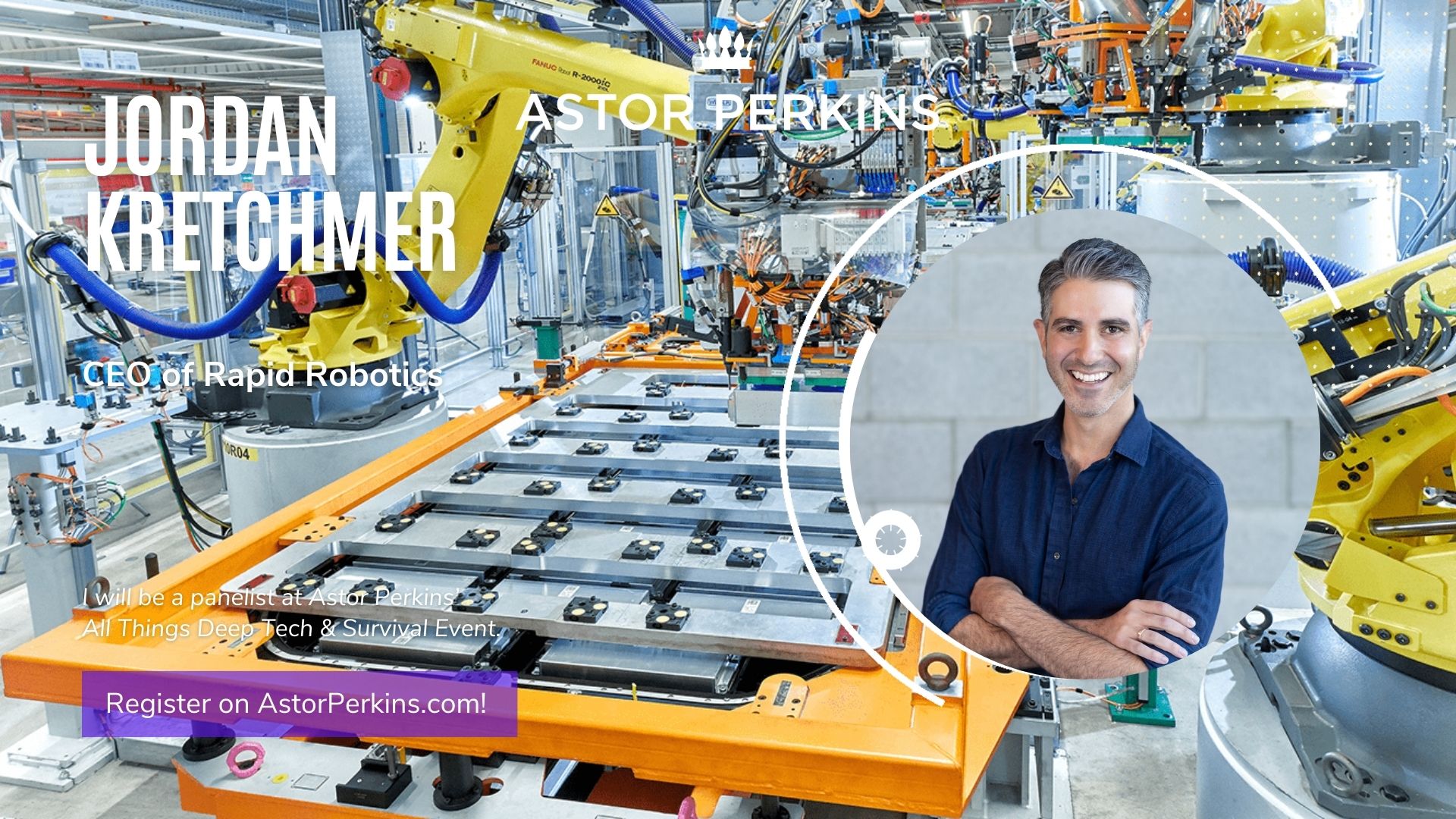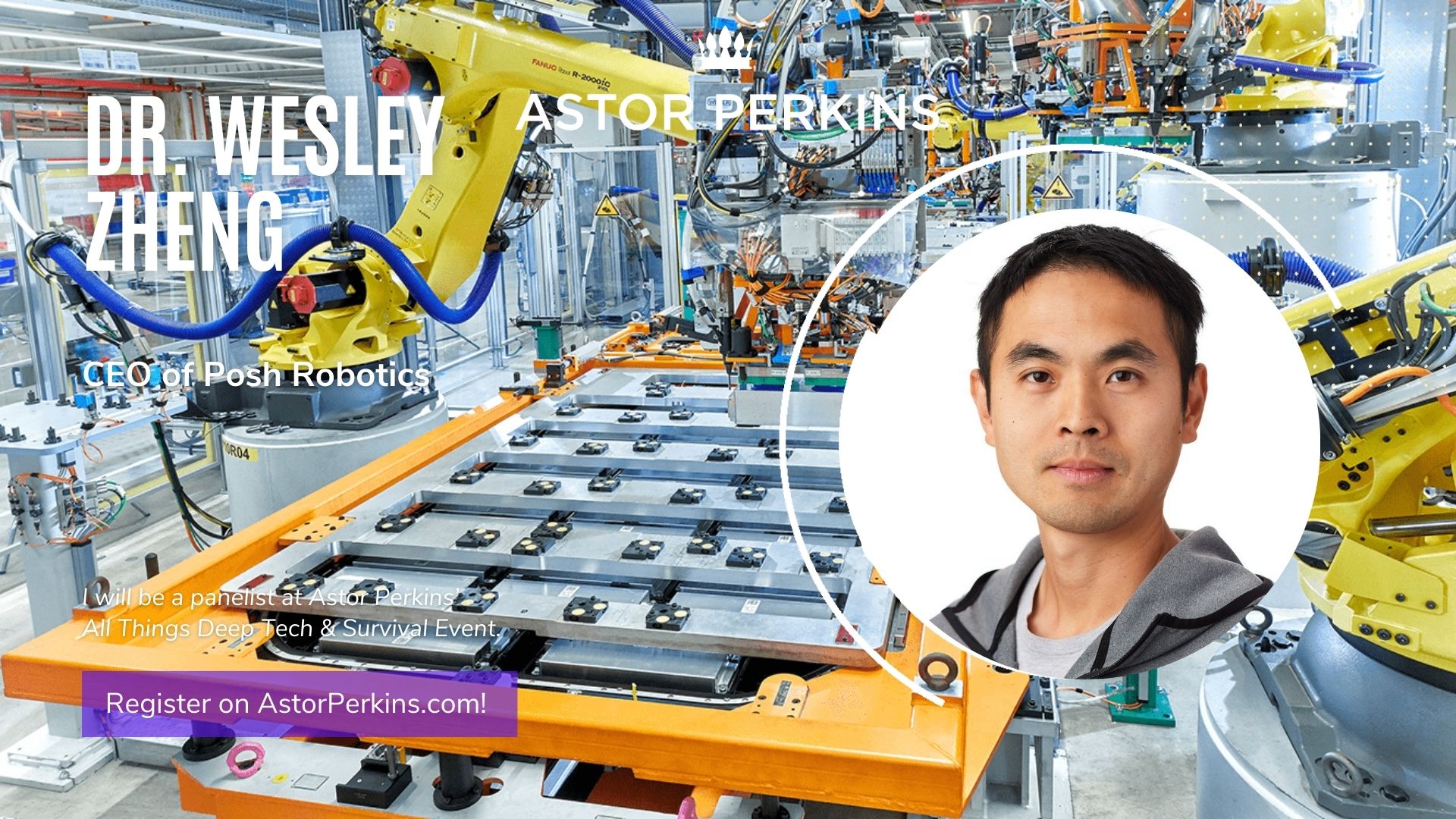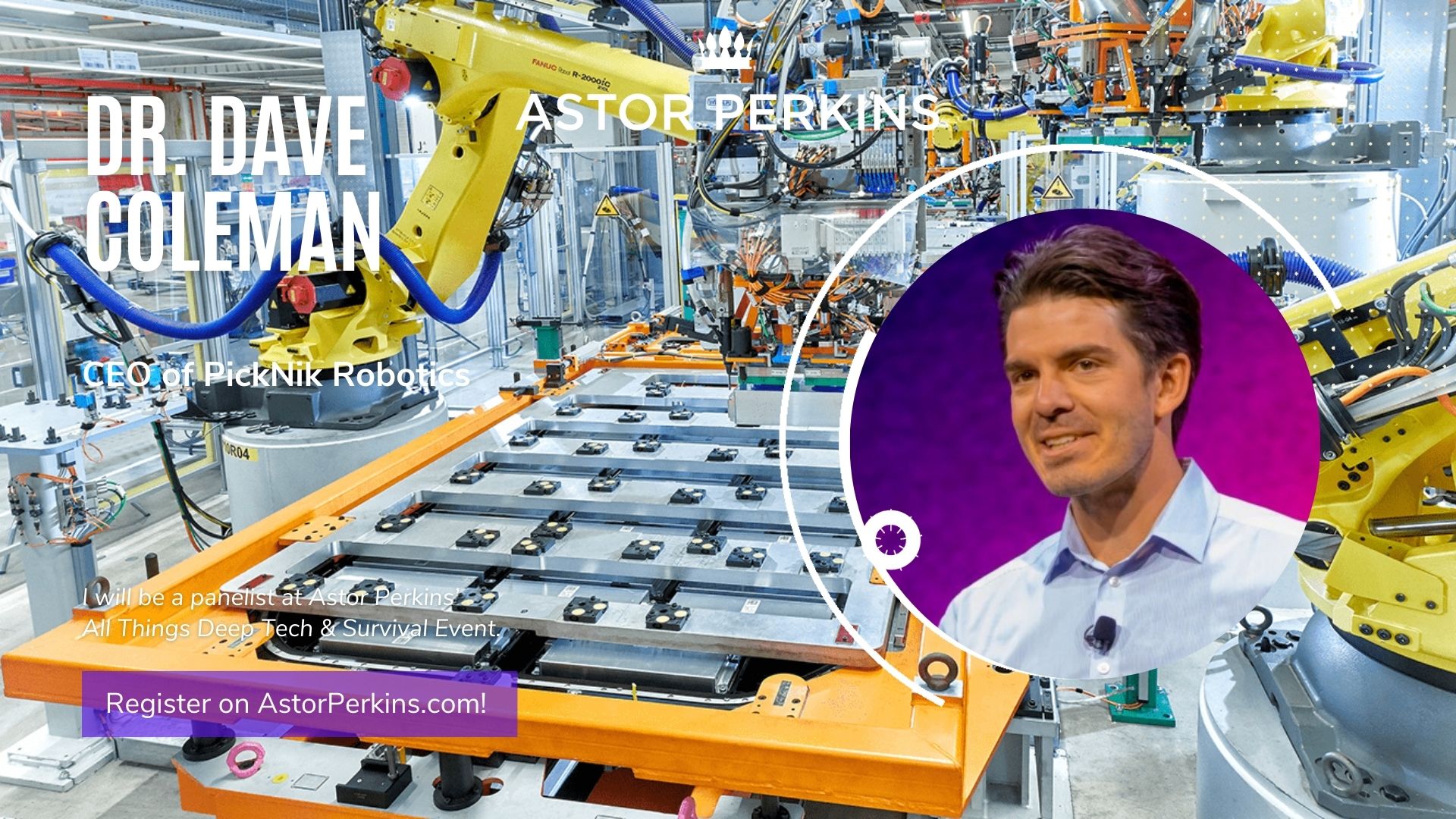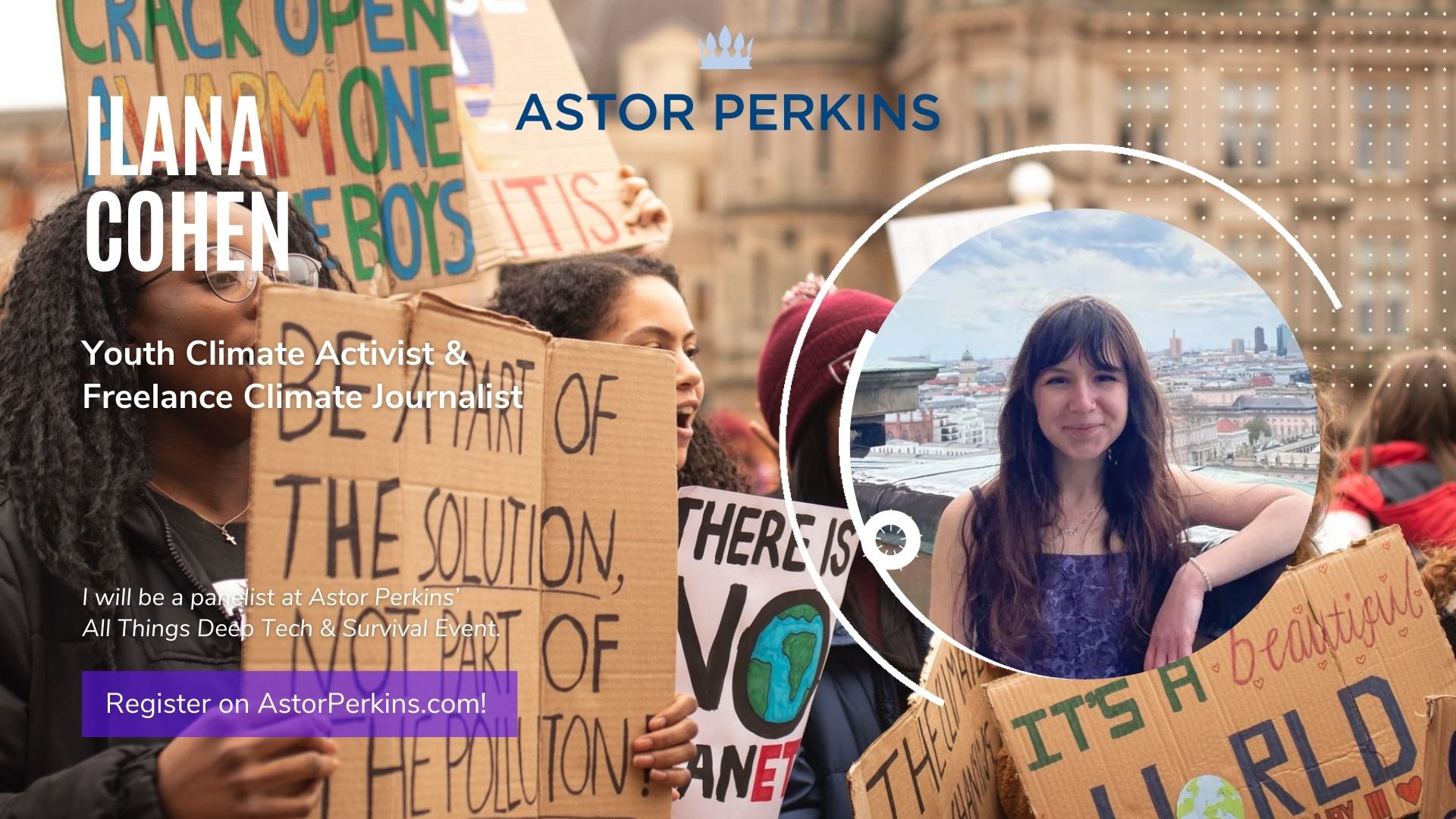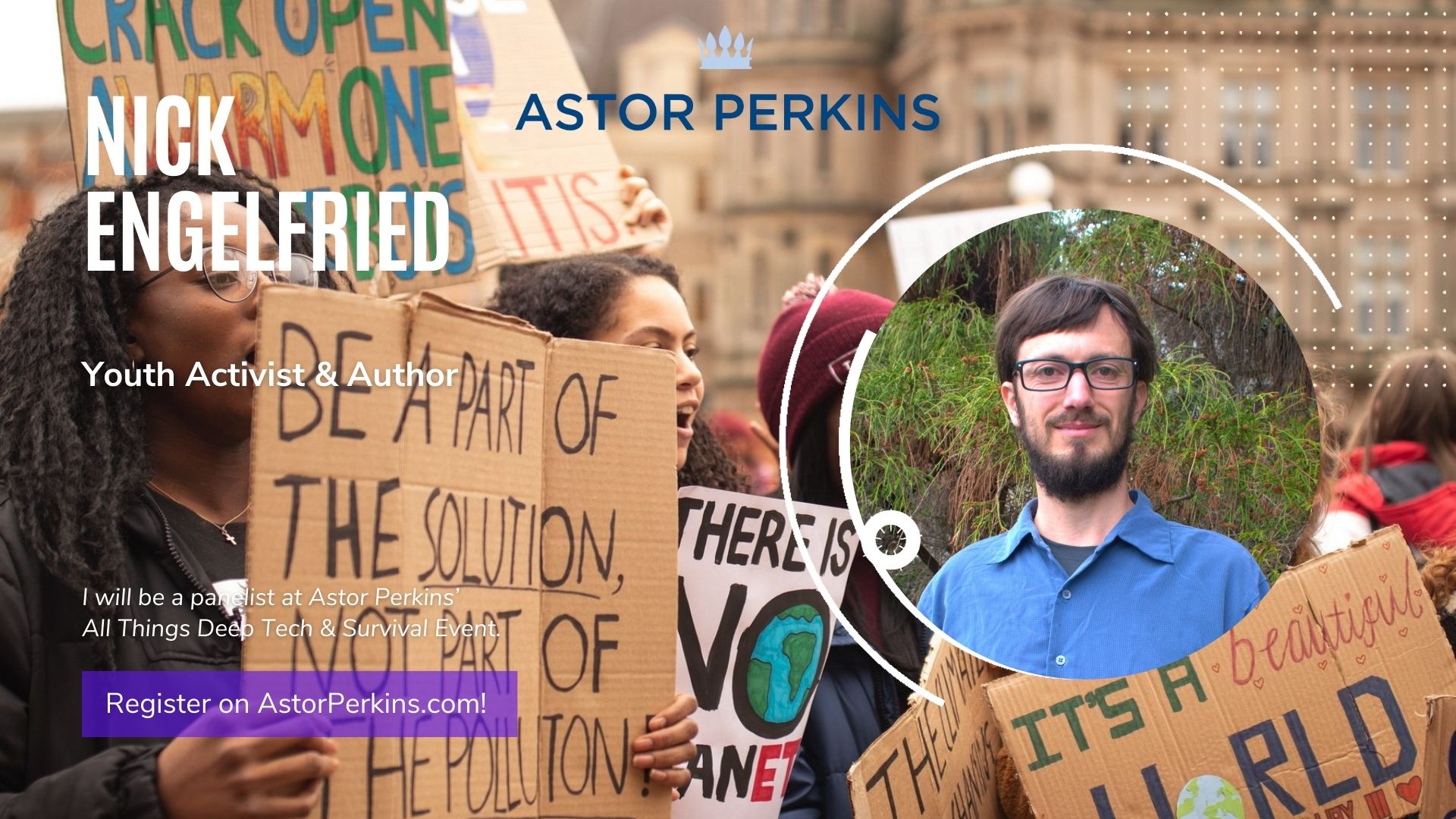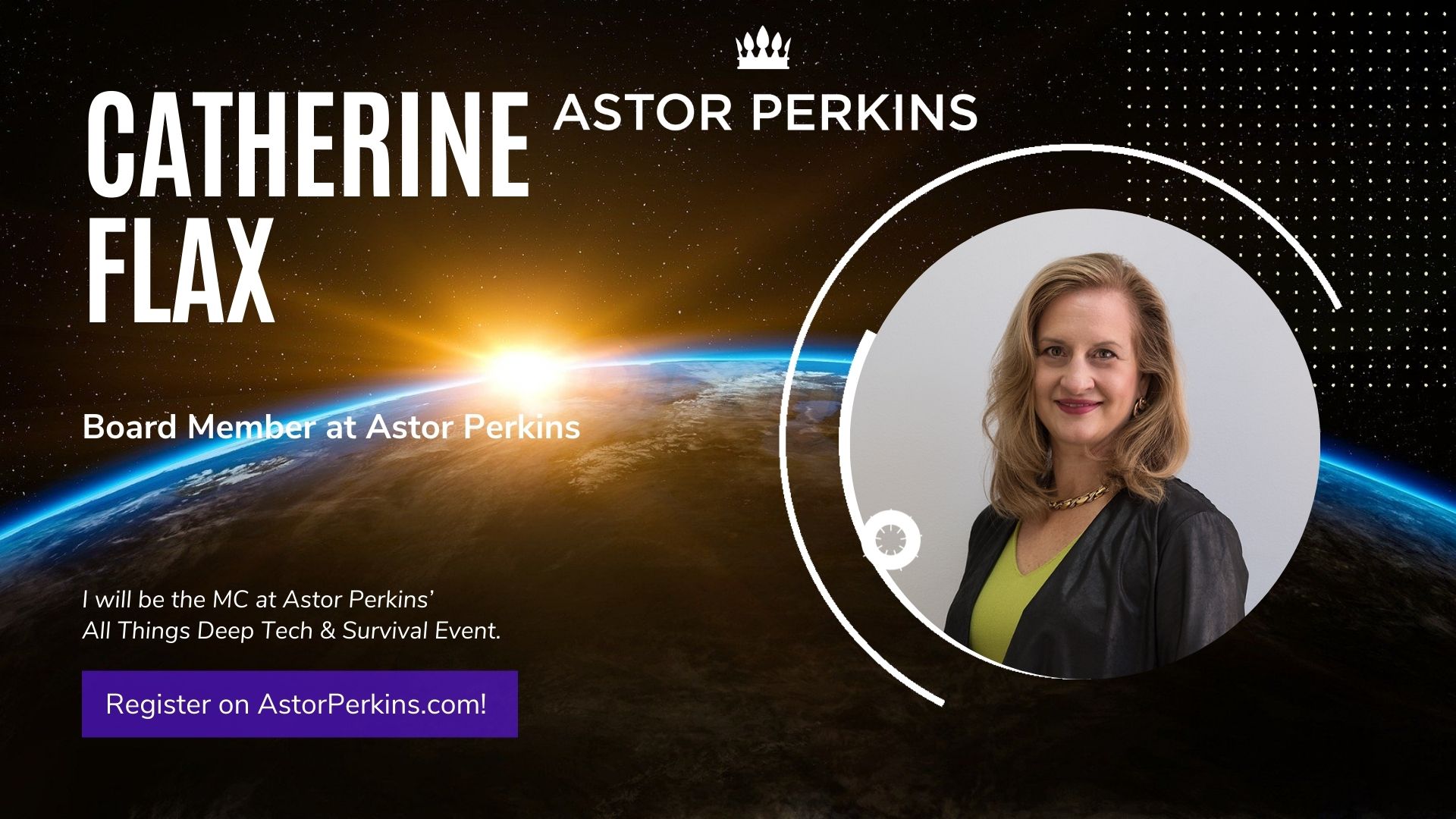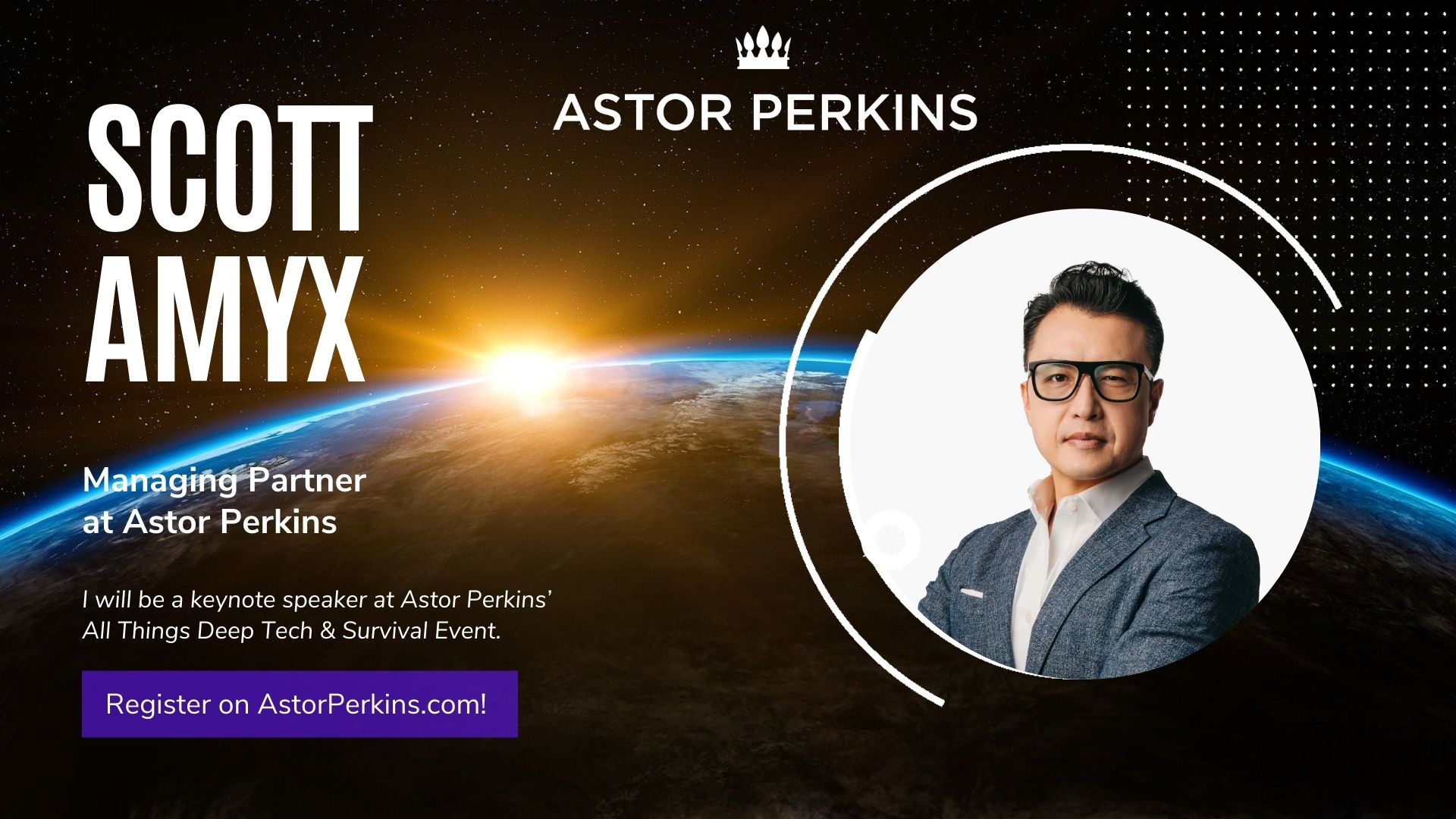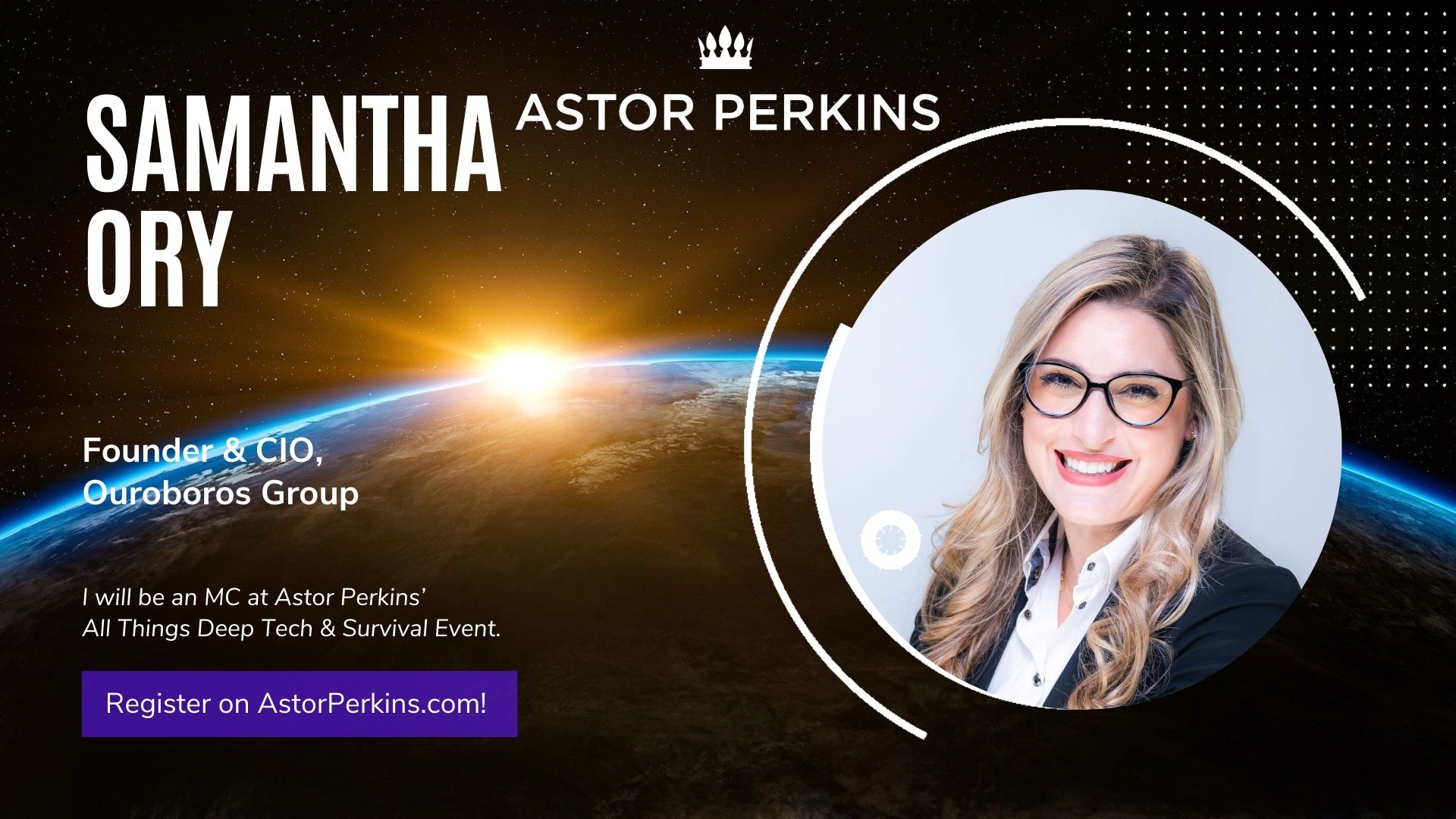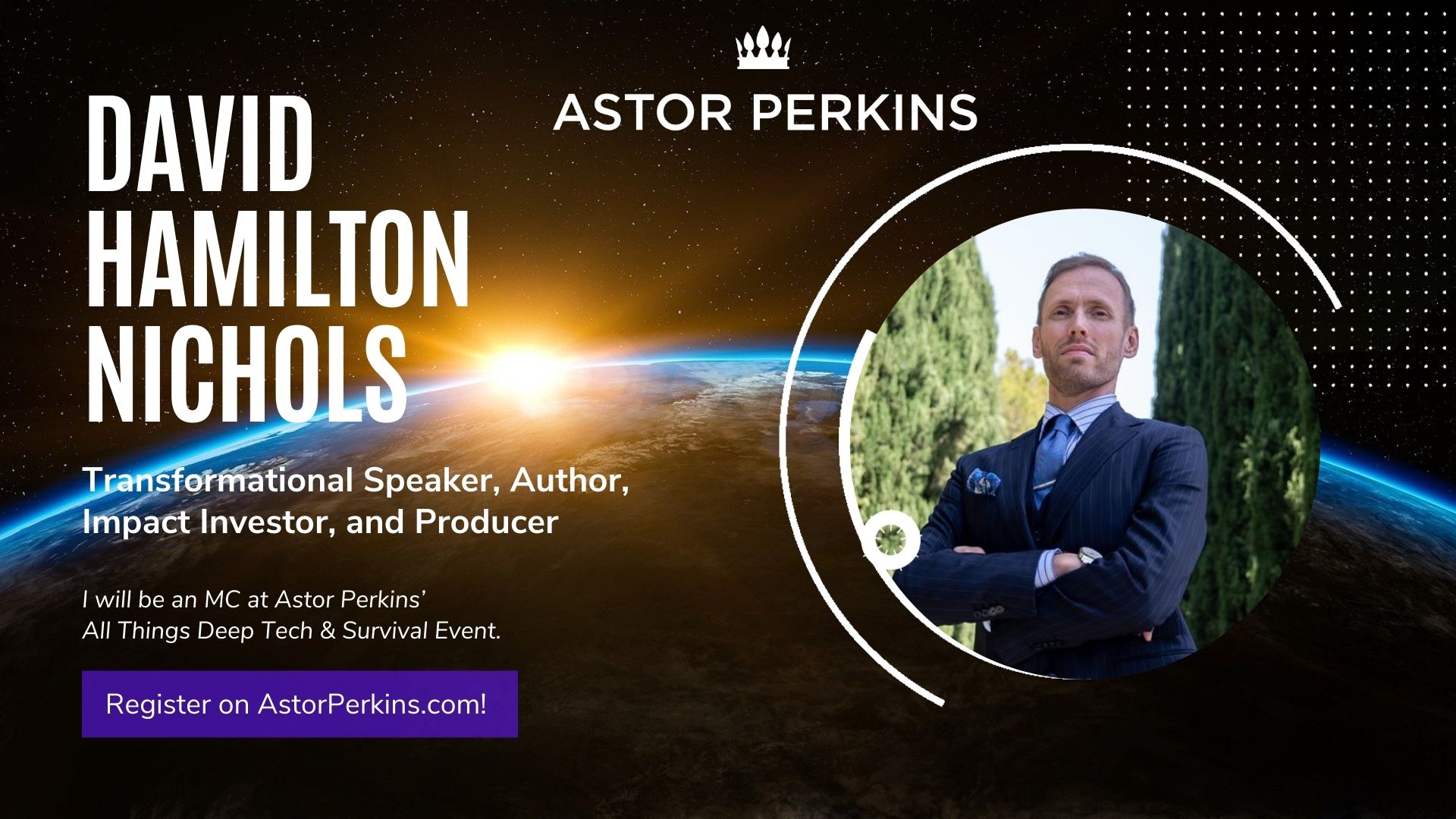and Human Survival.
SPACE
APRIL 26TH Sessions(All times in New York/ EDT) |
|---|
| WELCOME |
|
8:15 AM: Opening Scott Amyx, Managing Partner at Astor Perkins |
| SPACE & CLIMATE CHANGE/SUSTAINABILITY |
|
8:30 AM: Australian Research Council Centre of Excellence in Plants for Space Professor Matthew Gilliham, Director of the Waite Research Institute, University of Adelaide and Director of the Australian Research Council Centre of Excellence in Plants for Space ARC Centre of Excellence in Plants for Space aims to create on-demand, zero-waste, high-efficiency plants and plant products to address grand challenges in sustainability for Space and on Earth. Significant advances in plant, food, and sensory science; process and systems engineering; law and policy; and psychology are expected to deliver transformative solutions for Space habitation – and create enhanced plant-derived food and bioresources to capitalize upon emergent and rapidly expanding domestic and global markets. Anticipated outcomes include industry uptake of innovative plant forms, foods, technologies, and commodities; and an ambitious education and international coordination agenda to position Australia as a global leader in research supporting Space habitation. |
| LONGEVITY, BIOTECH & LIFE SCIENCES |
|
9:00 AM: Advancing cancer care through microbiome profiling Dr. Barbara Sladek, Managing Director at Biome Diagnostics Biome Diagnostics’ advanced analysis platform combines a proprietary knowledge database and thousands of samples with advanced bioinformatics, statistical models and machine learning algorithms. Together with cutting edge metagenomic sequencing technologies, they are able to identify thousands of bacterial organisms and predict their activities and roles in immune related functions within the body. |
| AI, ROBOTICS & AUTONOMY |
|
9:30 AM: Liquid neural networks Professor Daniela Rus, Director, MIT CSAIL and Andrew and Erna Viterbi Professor, EECS, Director, MIT-AF AI Accelerator MIT researchers introduce a new class of time-continuous recurrent neural network models. Instead of declaring a learning system’s dynamics by implicit nonlinearities, they construct networks of linear first-order dynamical systems modulated via nonlinear interlinked gates. The resulting models represent dynamical systems with varying (i.e., liquid) time-constants coupled to their hidden state, with outputs being computed by numerical differential equation solvers. These neural networks exhibit stable and bounded behavior, yield superior expressivity within the family of neural ordinary differential equations, and give rise to improved performance on time-series prediction tasks. |
| SPACE & CLIMATE CHANGE/SUSTAINABILITY |
|
10:00 AM: Satellite detection of global methane emissions Professor Steven Wofsy, Abbott Lawrence Rotch Professor of Atmospheric and Environmental Science, Harvard University More precise than other methane-sensing satellites that came before, MethaneSAT will allow scientists to track emissions to their sources and provide key data for reduction efforts. The MethaneSAT project has an ambitious policy goal: reduce global methane emissions from oil and gas facilities by 45 percent by 2025 and 70 percent by 2030. If achieved, it would have a similar impact on the climate over 20 years as closing one-third of the world’s coal plants. EDF plans to make the data publicly available — in near real time — to researchers, lobbyists, regulators, and others. Harvard’s Salata Institute for Climate and Sustainability recently awarded a grant to a multidisciplinary project, headed by the Harvard Kennedy School’s Robert Stavins, that involves 17 faculty members from six Harvard Schools and seeks to leverage publicly available data on methane — including from MethaneSAT — to affect policies and cut emissions. |
| SPACE |
|
10:30 AM: The implication of SpaceX’s Starship on the competitive landscape Dr. Abhishek Tripathi, Director of Mission Operations, UC Berkeley Space Sciences Laboratory Dr. Andy Lapsa, CEO of Stoke Space |
| SPACE |
|
11:00 AM: Space debris removal Luc Piguet, CEO of ClearSpace |
| AI, ROBOTICS & AUTONOMY |
|
11:30 AM: Accelerating robotics in manufacturing & industrial applications Dr. Dave Coleman, CEO of PickNik Robotics Jordan Kretchmer, CEO of Rapid Robotics Wesley Zheng, CEO of Posh Robotics |
| CLIMATE CHANGE/SUSTAINABILITY |
|
12:00 PM: The role of climate activism on legislation and capital Nick Engelfried, Youth Activist & Author Ilana Cohen, Youth Climate Activist and Freelance Climate Journalist |
| 12:30 PM: Adjournment |




